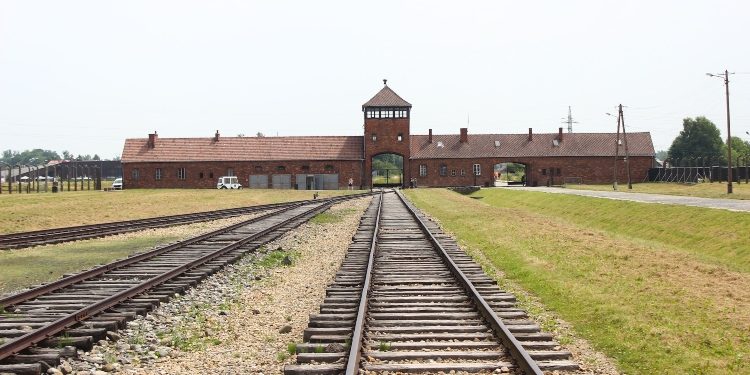The mere mention of Auschwitz conjures images of one of the darkest chapters in human history. A visit to Auschwitz is not just a tour; it is a powerful and sobering journey through the remnants of the Holocaust. Located in Oświęcim, Poland, Auschwitz was the largest of the Nazi concentration and extermination camps. Today, the Auschwitz tour brings millions of visitors face to face with the tangible evidence of the atrocities committed during World War II, offering a poignant lesson on the consequences of hate and the importance of remembrance and education.
Understanding Auschwitz: A Historical Context
Before embarking on an Auschwitz tour, it is essential to grasp the historical significance of what occurred at this site. Auschwitz consisted of three main camps: Auschwitz I, the original camp; Auschwitz II-Birkenau, a combined concentration and extermination camp; and Auschwitz III-Monowitz, a labor camp. The tour typically encompasses the first two, providing an insight into the systematic murder of over 1.1 million individuals, predominantly Jews, but also Poles, Romani people, Soviet POWs, and others deemed undesirable by the Nazi regime.
The Genocide at Auschwitz
The Auschwitz tour delves into the mechanics of genocide, revealing the chilling efficiency with which the Nazis implemented their “Final Solution.” Visitors walk through the barracks, gas chambers, and crematoria where countless lives were extinguished. Personal artifacts, such as suitcases, shoes, and glasses, are displayed, bearing silent testimony to the identities and humanity of the victims.
Life and Survival in the Camps
Moreover, the Auschwitz tour educates on the daily lives of prisoners, their struggle for survival, and acts of resistance. Exhibits and preserved areas, such as the prisoners’ barracks and the infamous “Block 11,” highlight the conditions under which inmates lived and the brutal punishments they endured.
Planning Your Visit to Auschwitz
An Auschwitz tour is a solemn journey that requires thoughtful preparation. Visitors should be aware of the emotional impact and exhibit respect for those who suffered and perished here.
Guided Tours: Gaining Deeper Insights
Opting for a guided Auschwitz tour is recommended for those seeking comprehensive historical context. Knowledgeable guides provide narratives that weave through the complex history, personal stories, and heart-wrenching facts of the camp’s role in the Holocaust.
Self-Guided Exploration
For those who prefer solitude to reflect on the gravity of the site, self-guided tours are also an option. Detailed guidebooks and audio guides are available, allowing visitors to absorb the information at their own pace.
Reservations and Etiquette
Due to the high volume of visitors, booking your Auschwitz tour in advance is essential. Observing proper etiquette, such as dressing appropriately and maintaining a respectful demeanor, is also crucial while touring this memorial to human suffering.
Reflecting on the Lessons of Auschwitz
An Auschwitz tour is more than a historical excursion; it is an opportunity for education and reflection. Visitors come away with a profound understanding of the depths of human cruelty, as well as the strength and resilience of the human spirit.
The Importance of Remembrance
Auschwitz stands as a stark reminder of the horrors of the Holocaust. The Auschwitz tour serves not only to honor the memory of those who died but also to ensure that such atrocities are never repeated. The lessons learned here underscore the need for vigilance against hatred and intolerance in all forms.
Education for Future Generations
Educators often include an Auschwitz tour in their curriculum to impart the lessons of the past to younger generations. Witnessing the physical remnants of the Holocaust promotes a deeper understanding of history and human rights than textbooks alone can provide.
Global Relevance and Responsibility
The universal messages uncovered during an Auschwitz tour resonate beyond the historical confines of World War II. They speak to the responsibility we share to uphold the dignity of all individuals and to confront prejudice and discrimination wherever they arise.
An Auschwitz tour is an emotionally charged, educational experience—a pilgrimage of remembrance and reflection. As we walk through the gates bearing the cynical inscription “Arbeit Macht Frei” (Work Sets You Free), we are reminded of the past’s shadows and the enduring light of human resilience and hope. It is a journey that leaves an indelible mark on the conscience, compelling us to look within and take action for a more just and compassionate world.
David Prior
David Prior is the editor of Today News, responsible for the overall editorial strategy. He is an NCTJ-qualified journalist with over 20 years’ experience, and is also editor of the award-winning hyperlocal news title Altrincham Today. His LinkedIn profile is here.


![7 Best POS Software in the UK [2026 Edition]](https://todaynews.co.uk/wp-content/uploads/2026/02/7-Best-POS-Software-in-the-UK-2026-Edition-360x180.png)










































































